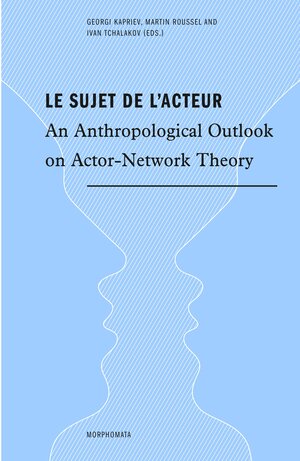
×
![Buchcover ISBN 9783770557264]()
Le Sujet de l'Acteur
An Anthropological Outlook on Actor-Network Theory
herausgegeben von Martin Roussel, Georgi Kapriev und Ivan TchalakovIn the past few years, the Actor-Network Theory of French philosopher and sociologist Bruno Latour has become a hotly debated topic in the humanities. From a philosophical perspective, his theory of things keeps being reevaluated: is it possible for »Human and Non-Human Actors« to be analyzed as equally important actors? Does Latour’s theory of a simultaneously »agency« of things and concepts indeed move beyond a subject-object relation, and if it does, how far does it in fact go? Such questions, seemingly at odds with more common traditions of thought, are the centerpiece of research at the Morphomata Center for Advanced Studies in the Humanities. Can these questions of intention and phenomenality be correlated with the resistance of things and their forms? The volume focuses on questions of symmetry or dissymmetry between the world of »things« and »human beings«, including contributions from the fields of social studies, literary studies, and philosophy.


